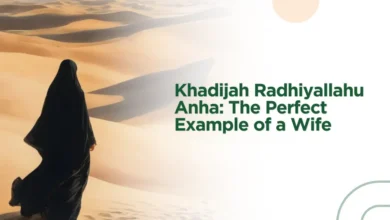Social Justice in Islamic Social Finance
Introduction
Social justice is one of the key principles upheld in Indonesia’s state ideology, as reflected in the fifth principle of Pancasila: “Social Justice for All Indonesian People.” This principle is not only relevant in the context of governance and public policy but also manifests in various aspects of societal life, including Islamic social finance practices. Islam, as a comprehensive religion, offers various social finance instruments such as zakat, waqf, and infaq, designed to realize social justice within the community. This article discusses how the principle of social justice in Pancasila connects with these Islamic social finance instruments.
Zakat as an Instrument of Social Justice
Zakat is one of the five pillars of Islam, obligatory for every Muslim who meets the criteria. In the context of social justice, zakat functions as a wealth redistribution mechanism, where a portion of wealth from the affluent is allocated to those less fortunate. Zakat aims not only to assist individuals in need but also to reduce socioeconomic disparities within society.
This principle aligns with the fifth principle of Pancasila, which emphasizes the importance of social justice for all Indonesian people. Zakat ensures that wealth does not circulate only among the rich but also reaches and enhances the well-being of those at the lower strata of society. In practice, zakat can be used for various purposes such as aid to the poor, education, health care, and infrastructure development that benefits the broader community.
Waqf: Building Social Infrastructure
Waqf is a form of ongoing charity in Islam with long-term impacts on social welfare. Waqf can take the form of assets donated for public benefit, such as building mosques, schools, hospitals, or other public facilities. Waqf benefits not only the direct recipients but also future generations.
The connection between waqf and the fifth principle of Pancasila is evident. This principle demands equitable development and justice in access to social facilities. Through waqf, Muslims can contribute to equitable development and the provision of social infrastructure that supports the welfare of society equally. For instance, waqf for education can enhance access to quality education, which in turn can reduce social disparities.
Infaq: Sharing for Collective Welfare
Infaq, which is a voluntary giving of one’s wealth, is also an instrument of Islamic social finance. Infaq is not restricted to specific groups and can be given to anyone in need, without any set time or amount. Infaq represents social care and solidarity among Muslims, where those with surplus wealth share with those in need.
In the context of Pancasila, infaq reflects the spirit of mutual cooperation and social justice. By sharing through infaq, society can help one another and ensure that every individual has an equal opportunity to achieve well-being. Infaq can also fund various social programs, such as disaster relief, economic empowerment, and healthcare services, all aimed at improving the overall quality of life in society.
Conclusion
Social justice, as mandated by the fifth principle of Pancasila, is a goal that must be pursued by all elements of society, including through Islamic social finance instruments like zakat, waqf, and infaq. These three instruments are not only tools to help those in need but also serve as means to create a more just and prosperous society. By optimizing the use of zakat, waqf, and infaq, Muslims can significantly contribute to the achievement of social justice in Indonesia, in line with the values contained in Pancasila.
Therefore, it is our collective duty to understand and implement these instruments in our daily lives, as a tangible manifestation of our commitment to social justice for all Indonesian people.
Also Read: The Balance Between Increasing Charity and Safeguarding Personal Wealth

References
- Chapra, M. U. (2008). The Islamic Vision of Development in the Light of Maqasid al-Shariah. Islamic Research and Training Institute, Islamic Development Bank Group.
- Kahf, M. (1998). Financing the Development of Awqaf Property. Islamic Research and Training Institute.
- Obaidullah, M., & Khan, T. (2008). Islamic Microfinance Development: Challenges and Initiatives. Islamic Research and Training Institute, Islamic Development Bank Group.
- Qardhawi, Y. (2000). Fiqh al-Zakat: A Comparative Study. Islamic Book Trust.
- Suharto, E. (2005). Zakat and Social Justice in Indonesia: A Social Policy Perspective. Journal of Islamic Social Sciences, 3(1), 45-58.







